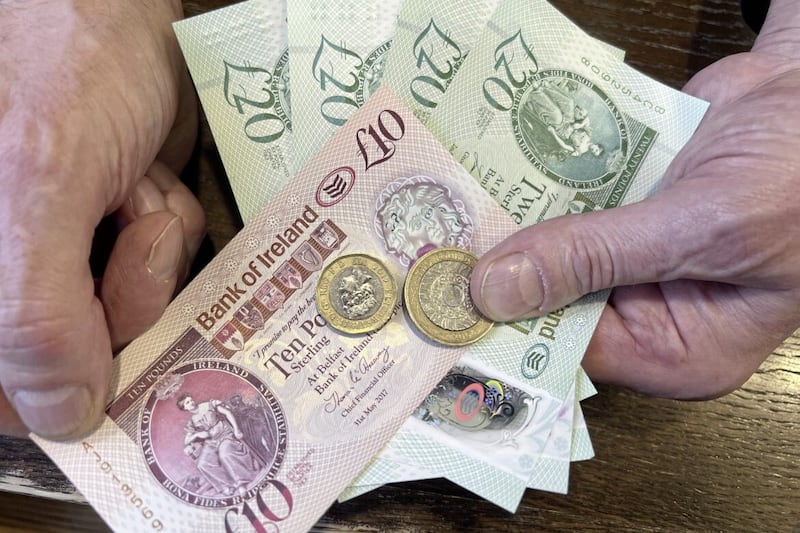THE discretionary spending power of the average Northern Ireland family has plunged by almost £45 a week, dropping below £100 for the first time since 2017.
Asda’s latest Income Tracker report, independently compiled by Cebr, shows that families here have just £93.50 a week left over after all taxes and their priority bills like mortgage, rates and energy are paid.
And it makes Northern Ireland the UK's poorest region, with leftover weekly cash in the north less than half of the UK average of £204.
Northern Ireland witnessed an annual contraction of 32.3 per cent in quarter two, which is the largest dip for any region in the history of the Income Tracker.
There are several key trends behind the fall, with Northern Ireland having a high share of public sector workers, where
wage growth has lagged behind in recent months, meaning income growth has been weaker than average.
The region also has a larger share of social security claimants, meaning the withdrawal of the Universal Credit uplift has had a disproportionate impact.
Soaring living costs - up 11 per cent year-on-year in June - meant that UK families were on average £43.95 a week, or £188.34 a month, worse off compared to June 2021.
On a UK-wide level, the cost-of-living crisis hits particularly hard for low-income families, with all of the bottom 20 per cent of households having ‘negative disposable income’ – resulting in a shortfall of £60 a week in June between what they earned and what they needed to spend on essentials such as mortgage, rent, utility bills and transport costs. Increasingly, those in the bottom 40 pre cent of households are also seeing negative discretionary income.
Sam Miley, senior economist at Cebr said: “The latest Asda Income Tracker report shows stark results for Northern Ireland, with the average household witnessing discretionary income of just £93.50 per week in Q2.
“The impact of the cost-of-living crisis is clear, with rising prices eating into incomes and reducing families’ ability to spend. Indeed this was the first time in five years that Northern Irish households have had less than £100 per week to spend on non-essential items.”
He added: “The worst could be yet to come, as an even more severe inflationary spike, driven by food and transport prices, is forecast for later this year, which would put further downward pressure on spending power.”








